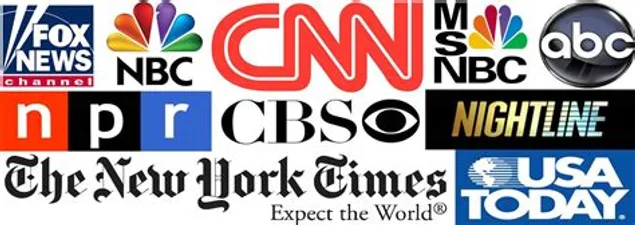Pushing Narratives: Legacy News Archetypes
I’ve avoided writing a lot of news stories in the past
2 years. You’ll find plenty on my page, but fewer than before. The reason is
simple. I don’t know what’s going on in the world and the events change daily.
It’s easier to go around blissfully unaware of the surrounding chaos and focus
on work and spiritual matters. I used to think people who didn’t follow the
news were either too busy with life or just uninterested. I never considered that
many didn’t want the trouble weighing heavily on their minds.
Most of the mainstream sources are pushing a narrative,
reinforcing preexisting archetypes. Fear over peace, chemical over natural, death
over life and sexual confusion over sexual purity.
I clicked past a news segment on PBS that profiled some
transgender. I didn’t stick around to find out the details. the subtext was clear; this person is hero. Ten years
ago no one was talking about transgender as a viable lifestyle. Today, this
small minority of people are suddenly ubiquitous. Their opinions are highly
sought after, demanded even. They appear out of nowhere hoisting signs and
protesting this movie or that business. Countless news stories need a trans
angle because apparently, it’s a hot topic. By why is it a hot topic? Because
someone decided so. Someone influential (or a group of influentials) created
this sermon and started preaching it.
As a regular guy I’m not privy to who the media takes its
direction from. But once you start seeing the angles and story lines it’s tough
to unsee it. Suddenly you can’t imagine why you didn’t see it before. It’s not
bias exactly, it’s something closer to telling your employer’s version of events.
At times it hovers just above the “technically” true line. Other times it’s true
but not relevant. Occasionally it’s false, dangerously so.
The best way to frame it is to imagine what news from a
strictly non-media company would sound like. I used to work for Target so I’ll
pick on them. Target makes its money selling consumer goods and groceries. What’s important to Target is what gets on the channel. They’ll do stories
on amazing TVs and other electronics, maybe a profile or two on the creator of some
new tech only available in one brand of phone. Naturally you can find the phone
at your nearest store.
There would be similar segments on grocery items. You could put
together a piece on coffee from Brazil and sent a crew to interviewer the grower.
I’m not talking about just dry commercials in between regular slots. I’m thinking
more of a CBS soft feature segment. With enough funding you could tell
interesting stories, even with the slant.
If Target was forced to do weather and traffic it would
revolve around shopping hours. Is the weather going to keep me from getting to
the store? Will it snow or sleet and can I get a bag of snow melt for the
walkway?
Is Target giving us news? Absolutely. But it’s only important
in so far as it revolves around our shopping. We wouldn’t blame Target for ignoring
a story about a dam collapse in Sri Lanka or a parliamentary election in Australia.
It’s not their purview. We know where Target’s money for news comes from. They
have an interest in selling consumer goods and promoting their own products.
I think something close to this is how our legacy media works.
They’ve become a channel of someone or something. Drug companies are one likely
candidate. I watched a segment a few years ago that featured Chris Evert explaining
how her sister’s death led Chris to get screened early for ovarian
cancer. As sad as it was to hear the story, it worked seamlessly into the pro
medicine/pro hospital push that CBS is known for. That was not an accident. I used
to watch the Sunday morning show and I started noticing a bombardment of drug
company ads. Drugs for erectile disfunction, heartburn, allergies, migraines, depression, anxiety, skin rashes and even restless legs. Restless leg syndrome affects a lot of people. Who knew?
I’m not against drugs, nor screenings, but after the heavy focus
on hospitals and diseases it started to make sense. Drug companies represent a
significant beneficiary of the information we’re being fed. Think about the
archetype of the heroic, life saving screening device Chris Evert used. Fear of
cancer was the enemy, medicine the savior. The commercials reinforce this too. It’s
also interesting that none of the information was untrue, so far as I could
tell. But it introduced in me, and certainly others, a fear of disease and a
positive impression of screenings.
But the news isn’t all about drugs, hospitals and death. There
is an element of straight reporting and commentary that harks back to the
traditional newsroom days. But my impression is subscribers alone won’t keep a media
company afloat. The current model is dishonest. It pretends to give it to us straight, but donors affect the information more than we realizes. Our Target news company was a genuine
product of specific corporate interest. How much of our legacy media is the
same thing? I’d say most.
Is the heavy focus on
transgender surgery an extension of the heroic pharmacy/medicine archetype? Whether
it’s that or a way to undermine traditional values, it’s a dangerous lie that’s
hurting kids. When you normalize the crazy and the perverse, you’re pushing a lifestyle
on the next generation. We need a media revolution in this country, out with the
old media guard and their corrupt messaging.

No comments:
Post a Comment